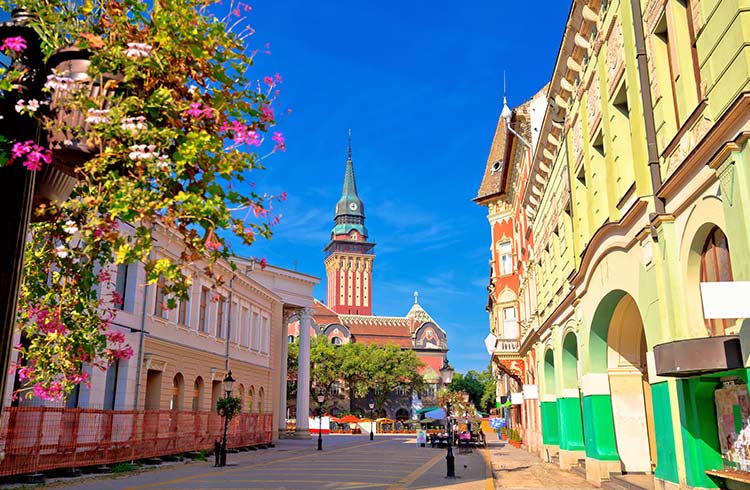Transport in Serbia: Tips for Traveling Around Safely
Is it safe to drive in Serbia? Find out about public transport safety, from taxis and buses to bribes and corruption, this is what you need to know.
 Photo © Getty Images/xbrchx
Photo © Getty Images/xbrchx
Driving in Serbia
Driving in Serbia can be a great way to see the country, with road conditions improving and being maintained, you can take things at your own pace.
The general standard of roads is fair to poor with conditions worsening in rural areas, especially in and after bad weather. One particularly notorious road is the Ibarska Magistrala (linking Belgrade, via Cacak and Uzice, to Montenegro). Bad conditions and overcrowding can make it dangerous.
Road works on the main highways across Serbia (from the Croatian and Hungarian border to Bulgaria and Macedonia) may cause delays.
Road rules are sometimes ignored by drivers and pedestrians, so it pays to keep your eyes peeled while on the roads.
Sometimes getting behind the wheel can be a hair-raising experience, so make sure if you want to drive around Serbia, take small steps until you get confident. And even then, be careful.
And watch out for the wildlife! Roads are constantly shared with farm animals in rural areas, and the last thing you want is a head-on with a cow or horse.
There are several toll booths along motorways. Toll charges vary depending on the size of your vehicle.
Foreign-registered vehicles are charged a higher toll than those registered locally.
You are advised to have sufficient cash (Dinars preferred, although Euros are accepted) to pay these toll charges.
Public transport dilemmas in Serbia
Although public transport is usually reliable, it can be congested and standards are variable.
Using taxi services for destinations outside metropolitan Belgrade is unwise, as prices are unreasonably high.
All licensed taxi drivers have a badge, an oval blue license plate with a serial number, and the Belgrade Coat of Arms displayed on the roof. Make sure that the taximeter is switched on.
And watch your tariffs in taxis!
Tariff 1 is the correct one Monday to Saturday from morning till 10pm.
Tariff 3 is the 'trick' fare used to scam out of obscene amounts of money.
Avoid taxi services being offered by drivers in the airport terminal (arrivals); that service has a long history of dishonest drivers (protected by the police) ripping off the passengers.
Drivers won't use their meters and will charge many times the normal fare.
In December 2010, new measures were introduced to help taxi passengers. Dispatch officers in yellow vests will give you information and vouchers for the ride. The ride should cost exactly RSD 1500 (€15) to most parts of the city center, Zemun and Novi Beograd, but for suburban areas it could cost up to RSD 7500 (€75).
There are reports of problems with this system, such as drivers claiming the voucher is only good for one passenger and that you must pay more for additional passengers. Consequently, visitors are still recommended to pre-book a taxi, as the drivers are less inclined to rip tourists off if they are aware the booking can be followed up later.
Bus travel in Serbia
So taxis might not be your thing… a bus may be more your speed.
When you take an international bus from Belgrade towards Germany, don't feel surprised when a collection is held inside the bus for paying the Hungarian border guards a fee to let the bus go faster over the border. This is what you would call a bribe. On your way into Serbia, it seems 'cheaper', though the Hungarian border guards will demand all passengers sign a form declaring they 'offered no gift, cash or otherwise, to Hungarian border police' whether they paid a bribe or not.
Bribes like this are commonplace, with corruption rife throughout the country.
Corruption is common with traffic police (who will stop you and attempt to fine you for speeding, even if you are abiding by the speed limits).
This is not a strange practice – from Asia to Africa, this is a typical revenue raiser for police. So grin and bear it. Putting up a fight may impact on you later.
Simple and flexible travel insurance
You can buy at home or while traveling, and claim online from anywhere in the world. With 150+ adventure activities covered and 24/7 emergency assistance.
Get a quote
No Comments